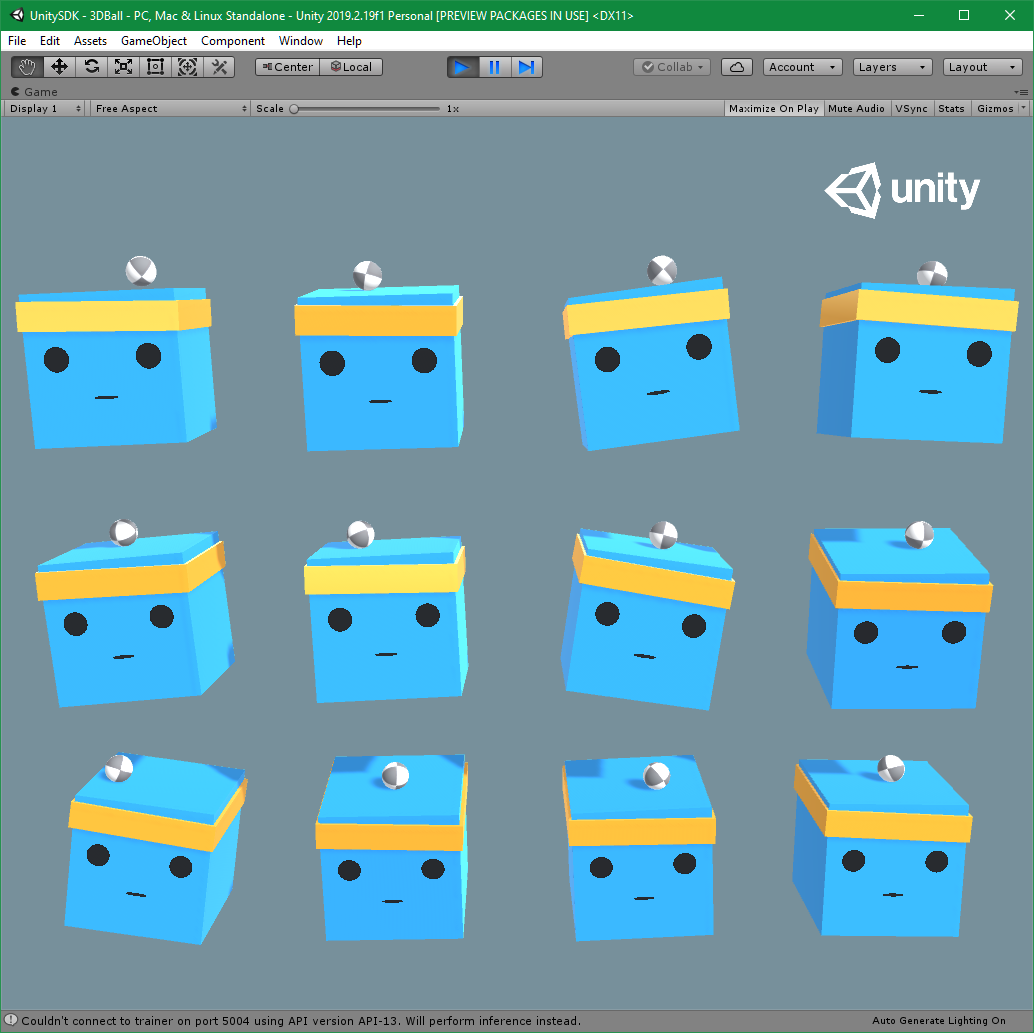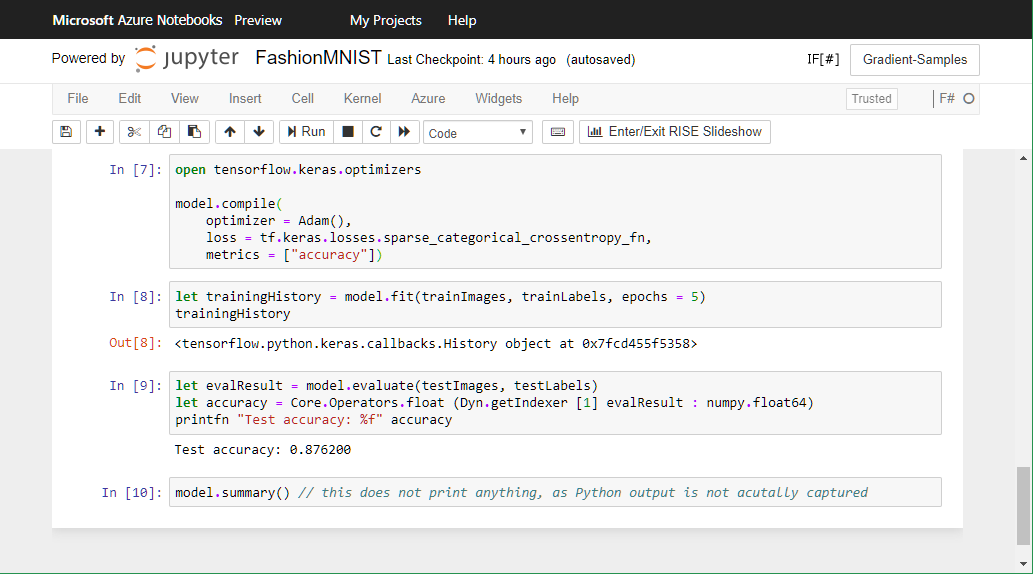TensorFlow 2.4 Preview 1
We just released LostTech.TensorFlow 2.4 Preview 1 on NuGet. This is the first preview of our TensorFlow binding for .NET, that targets TensorFlow 2.x.
Take a look at TensorFlow official documentation to see what’s new in TensorFlow 2.x.
We also updated Samples to work with the Preview.
TensorFlow 2 by default works in eager execution mode.
Most samples, that use TF 1.x style require legacy
Session-based mode instead.
It can be enabled at the start of the program by calling v1.disable_eager_exection().
Legacy TF 1.x APIs are available in v1 class under tensorflow.compat.v1 namespace.




